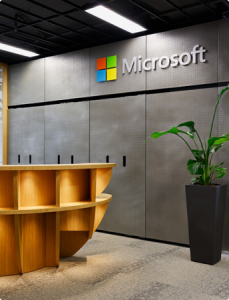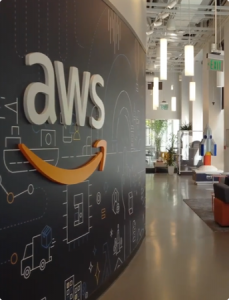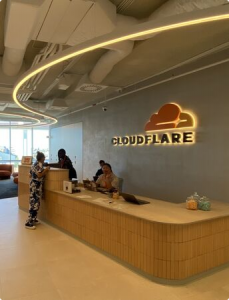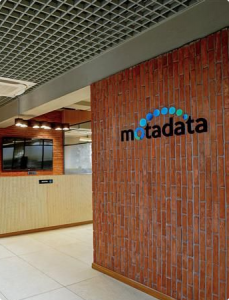Navigating the 2024 talent pool: Top trends to hire and retain excelling employees
How to attract, engage and retain the best talent in the post-pandemic world
The year 2020 has brought unprecedented challenges and changes to the world of work. The COVID-19 pandemic has accelerated the adoption of remote work, digital transformation, and flexible work arrangements. The talent pool has also become more diverse, global, and dynamic, as workers seek new opportunities, skills, and experiences. As a result, employers need to rethink their talent strategies and adapt to the new realities of the 2024 talent pool.
In this blog, we will explore some of the top trends that will shape the future of talent acquisition and retention, and how you can leverage them to hire and retain excelling employees in the post-pandemic world.
Trend 1: Remote work is here to stay
One of the most significant shifts in the 2024 talent pool is the rise of remote work. According to a recent survey, 82% of company leaders plan to allow employees to work remotely some of the time, and 47% plan to allow employees to work remotely all of the time. Remote work offers many benefits for both employers and employees, such as increased productivity, reduced costs, improved work-life balance, and access to a wider and more diverse talent pool.
However, remote work also poses some challenges, such as communication, collaboration, engagement, and performance management. To overcome these challenges, employers need to invest in the right tools, policies, and practices to support remote workers and create a culture of trust, accountability, and inclusion. Some of the best practices for remote work include:
- Establishing clear and frequent communication channels, such as video calls, instant messaging, and project management platforms.
- Setting realistic and measurable goals and expectations and providing regular feedback and recognition.
- Offering flexible work schedules and respecting employees’ boundaries and preferences.
- Providing opportunities for learning and development and encouraging employees to upskill and reskill.
- Creating virtual spaces for social interaction and team building, such as online games, quizzes, and coffee chats.
Trend 2: Employee experience is the new competitive edge
Another key trend in the 2024 talent pool is the importance of employee experience. Employee experience is the sum of all the interactions and perceptions that employees have with their employer, from the moment they apply for a job to the moment they leave. Employee experience encompasses various aspects of work, such as culture, environment, technology, rewards, recognition, learning, development, and well-being.
Employee experience has a direct impact on employee engagement, satisfaction, loyalty, performance, and retention. According to a study by Gallup, companies with highly engaged employees are 21% more profitable, 17% more productive, and 10% more customer-focused than those with low engagement. Moreover, employee experience is also a key factor in attracting and retaining top talent, as candidates and employees have higher expectations and more choices in the post-pandemic world.
To create a positive and differentiated employee experience, employers need to adopt a human-centric and holistic approach, and focus on the following elements:
- Empowering employees with autonomy, flexibility, and ownership of their work.
- Providing employees with the tools, resources, and support they need to do their best work.
- Recognizing and rewarding employees for their contributions and achievements.
- Offering employees personalized and continuous learning and development opportunities.
- Supporting employees’ physical, mental, and emotional well-being, and promoting a healthy work-life balance.
- Listening to employees’ feedback and involving them in decision-making and innovation.
- Building a strong and inclusive culture that aligns with the company’s vision, values, and purpose.
Trend 3: Diversity, equity, and inclusion are more than just buzzwords
The third trend in the 2024 talent pool is the growing emphasis on diversity, equity, and inclusion (DEI). DEI refers to the policies, practices, and culture that ensure that all employees are treated fairly, respectfully, and equally, and that they have a sense of belonging and value in the workplace. DEI also encompasses the diversity of perspectives, backgrounds, identities, and experiences that employees bring to the table, and how they are leveraged for innovation and growth.
DEI is not only a moral and social responsibility, but also a business imperative. According to a report by McKinsey, companies in the top quartile for gender diversity on executive teams were 25% more likely to have above-average profitability than those in the fourth quartile, and those in the top quartile for ethnic and cultural diversity were 36% more likely. Moreover, DEI is also a key driver of employee engagement, retention, and attraction, as employees and candidates seek workplaces that reflect and respect their identities and values.
To foster a culture of DEI, employers need to take concrete and consistent actions, such as:
- Conducting regular audits and surveys to assess the current state of DEI and identify gaps and opportunities.
- Setting clear and measurable goals and metrics to track and improve DEI outcomes.
- Implementing fair and transparent hiring and promotion processes, and ensuring a diverse representation in leadership and decision-making roles.
- Providing training and education on DEI topics, such as unconscious bias, cultural competence, and allyship.
- Creating and supporting employee resource groups, networks, and events that celebrate and amplify diverse voices and perspectives.
- Partnering with external organizations and communities that promote and advocate for DEI.
Conclusion
The 2024 talent pool is changing rapidly and radically, and employers need to adapt and innovate to stay ahead of the curve. By embracing remote work, enhancing employee experience, and advancing diversity, equity, and inclusion, employers can attract, engage, and retain the best talent in the post-pandemic world, and achieve sustainable and competitive success.










